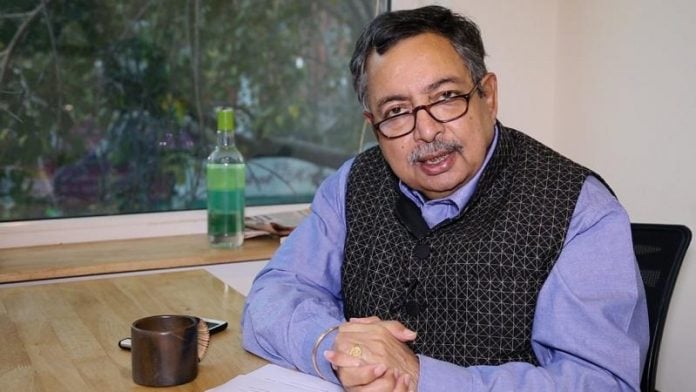In quashing the FIR against veteran journalist Vinod Dua, the Supreme Court today made some important observations. After the court detailed how it found no substance or negative reference in Dua’s talk show videos against Prime Minister Narendra Modi, the court also said:
“In our view, the statements by the petitioner as mentioned hereinabove, if read in the light of the principles emanating from the decision in Kedar Nath Singh and against the backdrop of the circumstances when they were made, can at best be termed as an expression of disapprobation of actions of the Government and its functionaries so that prevailing situation could be addressed quickly and efficiently. They were certainly not made with the intent to incite people or showed a tendency to create disorder or disturbance of public peace by resort to violence.”
The entire façade of the Himachal Pradesh Police FIR was torn to bits with these comments of the top court. The court’s observation made it clear that “an expression of disapprobation of actions of the Government” isn’t, by nature a seditious act. The top court has come out recently with a comment stating that all laws relating to sedition need to be reviewed. This order makes it clear that it was the need of the hour for governments to learn to live with constructive criticism.
Of course, the court said that every “journalist” will be entitled to protection in terms of Kedar Nath Singh judgment, as every prosecution under Sections 124A and 505 of the IPC must be in strict conformity with the scope and ambit of said Sections as explained in, and completely in tune with the law laid down in Kedar Nath Singh.
The bench of Justices UU Lalit and Vineet Saran, in quashing the FIR, also inferred that allegations need to be within the framework of the law.
At the same time, the Court did not allow the second prayer made by Dua in his petition that no FIR be registered against a person belonging to media with at least 10 years of standing unless cleared by a Committee as suggested. The Court said: “Constitution of the committee is completely outside the scope of the statutory framework. Any relief granted in terms of the second prayer would certainly, in our view, amount to encroachment upon the field reserved for the legislature.”
On the aspect of the FIR, the apex court has noted that: “On facts, it has been established that the statements attributed to the petitioner that the Prime Minister had used deaths and terror attacks to garner votes or that the Prime Minister had garnered votes through acts of terrorism, were not made in the Talk Show. The true translation of the original episode in Hindi, has been placed on record. No such assertions find place in the true translation nor were any objections raised that the translated version was in any way incorrect. The petitioner did say that the air strikes by India on Balakot and attacks on Pathankot and Pulwama were used as political events to garner votes but no allegations were made against the Prime Minister as was stated in the F.I.R.”
The Court said as per the decision of the Kedar Nath Singh; (e) “The provisions of the Sections 41 read as a whole, along with the explanations, make it reasonably clear that the sections aim at rendering penal only such activities as would be intended, or have a tendency, to create disorder or disturbance of public peace by resort to violence.
“According to this Court only such activities which would be intended or have a tendency to create disorder or disturbance of public peace by resort to violence – are rendered penal,” it held.
The Court said that the Principles culled out from the decision of Court in Kedar Nath Singh, show that a citizen has a right to criticize or comment upon the measures undertaken by the Government and its functionaries, so long as he does not incite people to violence against the Government established by law or with the intention of creating public disorder; and that it is only when the words or expressions have pernicious tendency or intention of creating public disorder or disturbance of law and order that Sections 124A and 505 of the IPC must step in.
Read Also: Supreme Court directs CBSE to amend bye-laws on name change in certificates
The Court held, “In our view, the statements by the petitioner as mentioned hereinabove, if read in the light of the principles emanating from the decision in Kedar Nath Singh and against the backdrop of the circumstances when they were made, can at best be termed as expression of disapprobation of actions of the Government and its functionaries so that prevailing situation could be addressed quickly and efficiently. They were certainly not made with the intent to incite people or showed tendency to create disorder or disturbance of public peace by resort to violence.”
Source: ILNS


